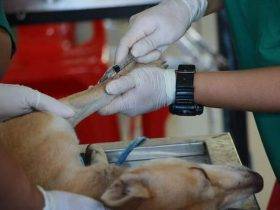Effective Dog Anxiety Remedies
Dogs are more than just pets; they are loyal companions who bring joy and happiness to our lives. As such, We understand how essential it is to keep your furry friend happy and relaxed. However, just like humans, dogs can experience anxiety, which can affect their overall well-being.
Dog anxiety can really be challenging to deal with, but fear not, for we have compiled a comprehensive guide to help you and your beloved canine companion. In this article, we will delve deep into the world of dog anxiety and provide you with a plethora of effective remedies that will not only ease their stress but also improve their overall well-being
In this article, we will explore the world of dog anxiety, its various types, and effective remedies to help your furry friend find peace.
Understanding Dog Anxiety
Dog anxiety is a common issue that can be triggered by various factors. Before we jump into the dog anxiety remedies, it’s crucial to comprehend what dog anxiety is and what causes it. Anxiety in dogs can manifest in various ways, including excessive barking, destructive behavior, excessive drooling, and even aggression. It can be triggered by various factors, such as separation anxiety, loud noises, car rides, or even meeting new people.
Understanding the root cause of your dog’s anxiety is the first step to finding the right dog anxiety remedy. In some cases, it may require a combination of dog anxiety remedies to achieve the best results.
Types of Dog Anxiety
It’s essential to understand the different types of dog anxiety to address your dog’s specific needs effectively and offer the best possible dog anxiety remedies.
3.1 Separation Anxiety
Separation anxiety in dogs is one of the most common forms of anxiety in dogs. It occurs when dogs become distressed when separated from their owners. They may exhibit destructive behavior, excessive barking, or house soiling.
3.2 Noise Anxiety
Many dogs are sensitive to loud noises such as thunderstorms or fireworks. Noise anxiety can cause panic attacks, trembling, and attempts to escape.
3.3 Social Anxiety
Some dogs may experience social anxiety, making them uncomfortable around other dogs or people. They may exhibit signs of fear, aggression, or shyness in social situations.
Recognizing the Symptoms
To help your dog, it’s crucial to recognize the symptoms of dog anxiety, which can vary based on the type. These may include excessive panting, pacing, whining, and avoidance behavior.
The Impact of Dog Anxiety
Untreated dog anxiety can lead to various health and behavioral issues, including aggression, depression, and physical ailments. It’s essential to address the problem promptly.
12 Amazing and Natural Remedies for Dog Anxiety
These twelve amazing and natural ways to remedy you dog anxiety have helped other pet owners. We believe using these listed techniques can enable your lovely pet become more calmer and lovely.
1. Regular Exercise
Regular exercise is essential to keep your dog physically and mentally stimulated. It can reduce anxiety levels and provide an outlet for their energy.
2. CBD Oil
CBD oil has gained popularity as a natural remedy for dog anxiety. It has calming properties and can help alleviate anxiety symptoms.
3. Herbal Supplements
Certain herbal supplements like chamomile and valerian root can have a calming effect on dogs. They are safe and effective alternatives.
4. ThunderShirts
ThunderShirts are snug-fitting garments that provide gentle, constant pressure, which can help soothe anxious dogs.
5. Behavioral Training
Behavioral training techniques can be highly effective in reducing anxiety. Positive reinforcement, desensitization, and counter-conditioning can help your dog overcome their fears.
6. Thundershirt
A Thundershirt is a snug-fitting vest designed to provide gentle, constant pressure to a dog’s body. This pressure can have a calming effect on anxious dogs, similar to swaddling a baby. Many pet owners have found Thundershirts to be a helpful tool in reducing anxiety during thunderstorms, fireworks, or other anxiety-inducing situations.
7. Aromatherapy
Aromatherapy is not just for humans; it can also benefit your canine companion. Essential oils like lavender, chamomile, and valerian have soothing properties that can help alleviate stress in dogs. However, it’s essential to use these oils with caution and consult a veterinarian for guidance on safe usage.
-
. Natural Supplements
Several natural supplements can help reduce anxiety in dogs. These include:
- L-theanine: An amino acid found in green tea, L-theanine can promote relaxation without causing drowsiness.
- Valerian Root: Valerian root is a herbal remedy known for its calming properties and can be administered to dogs in various forms.
- Chamomile: Chamomile is a gentle herb that can be made into a tea or added to your dog’s food to promote relaxation.
8. Interactive Toys
Interactive toys, such as puzzle feeders and treat-dispensing toys, can provide mental stimulation and distract your dog from their anxiety triggers. These toys engage their minds and keep them occupied, reducing stress and boredom.
9. Calming Music and White Noise
Believe it or not, dogs can benefit from soothing music and white noise, just like humans. Playing calming music or nature sounds can help create a peaceful environment and mask loud noises that may trigger anxiety.
10 Creating a Safe Space
Providing your dog with a designated safe space, like a crate or a quiet room, can help them feel secure during stressful situations.
11. Reducing Triggers
Identifying and minimizing triggers that cause anxiety is essential. Avoiding or modifying these situations can significantly improve your dog’s well-being.
12. The Importance of Routine
Dogs thrive on routine. Maintaining a consistent daily schedule can help reduce anxiety as it creates predictability for your pet
Medications for Severe Cases
These should only be used under professional guidance.Professional Help is vital if your dog’s anxiety is severe and unmanageable, seeking professional help from a veterinary behaviorist or a certified dog trainer is crucial. They can assess your dog’s specific needs and develop a customized treatment plan.
Conclusion
Dog anxiety is a common issue that can significantly impact your furry friend’s life. Understanding the types of anxiety, recognizing the symptoms, and implementing remedies like natural treatments, behavioral training, and creating a safe environment can help your dog find peace and happiness. More so, dealing with dog anxiety requires patience, understanding, and the right remedies. By using a combination of these techniques and products, you can significantly improve your dog’s quality of life and ensure a happier, more relaxed companion. Remember to consult with your veterinarian before trying any new remedies, as they can provide tailored guidance for your furry friend’s unique needs.
FAQs
What are the common signs of dog anxiety?
Common signs of dog anxiety include excessive panting, pacing, whining, avoidance behavior, and destructive actions.
can I use CBD oil to treat my dog’s anxiety?
CBD oil can be a useful remedy for dog anxiety, but it’s essential to consult with your veterinarian before use.
How can I create a safe space for my dog during thunderstorms?
You can create a safe space by providing a quiet, enclosed area and using soothing methods like ThunderShirts.
What is the best way to reduce social anxiety in dogs?
Reducing social anxiety in dogs involves gradual exposure to social situations, positive reinforcement, and patience.
When should I seek professional help for my dog’s anxiety?
You should seek professional help if your dog’s anxiety is severe, persistent, or if it negatively affects their well-being and quality of life.






Leave a Reply